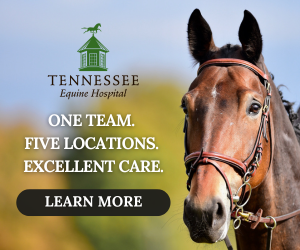Stay updated on the EHV-1 outbreak impacting barrel racing events in Texas and Oklahoma, including the WPRA Finals and BFA World Championships. Learn how to protect your horses and prevent the spread of this highly contagious equine virus.
An aggressive outbreak of Equine Herpesvirus-1 (EHV-1), including the dangerous neurological form known as Equine Herpes Myeloencephalopathy (EHM), has disrupted major barrel racing events in Texas and Oklahoma. The WPRA World Finals, Elite Barrel Race, and BFA World Championships have all reported confirmed cases of this highly contagious equine virus. With the National Finals Rodeo (NFR) just around the corner, horse owners and competitors must take immediate action to protect their horses and prevent further spread of EHV-1.
What is EHV?
Equine Herpesvirus (EHV) is a highly contagious virus that affects horses worldwide, with EHV-1 being the most concerning strain. It can cause respiratory illness, fever, abortion in pregnant mares, and the neurological condition known as EHM. EHV-1 spreads through direct horse-to-horse contact, shared equipment, and even human transmission via clothing or tools. Horses can also carry the virus silently, shedding it during times of stress, making biosecurity measures critical during high-traffic equestrian events.
Key Developments:
- WPRA World Finals and Elite Barrel Race (Nov. 5–9, 2025, Waco, TX): Multiple cases of EHV-1 have been traced to horses attending these events.
- BFA World Championships (Nov. 15–22, 2025, Lazy E Arena, Guthrie, OK): The event was canceled on November 18 after a confirmed positive case of EHV-1. The Oklahoma State Veterinarian is monitoring the situation closely.
What This Means for Barrel Racing:
The outbreak has disrupted key events and raised concerns about the health of equine athletes and the potential for further spread. With the NFR on the horizon, competitors and organizers must prioritize biosecurity to safeguard horses and prevent additional cancellations.
Checklist for Horse Owners:
- Monitor Temperatures: Check your horse’s temperature twice daily. A reading of 101.5°F or higher is concerning.
- Isolate Symptomatic Horses: Separate any horse showing signs of fever, respiratory issues, or neurological symptoms.
- Disinfect Equipment: Clean and disinfect shared items like buckets, grooming tools, and tack.
- Avoid Contact: Prevent nose-to-nose contact between horses.
- Consult Your Veterinarian: Report any symptoms immediately for early intervention.
- Stay Home if Possible: Limit travel and exposure to other horses to reduce the risk of contamination.
Official Guidance:
- The WPRA and BFA are working closely with state veterinarians and health commissions to trace and contain the outbreak.
- The Oklahoma State Veterinarian recommends that horses exposed at the WPRA event or BFA World Championships be quarantined at home and monitored for symptoms.
For more information and official guidance, visit the Texas Animal Health Commission website or contact the Oklahoma State Veterinarian’s office at 405-522-6141.
The health and safety of our equine athletes and the barrel racing community remain the top priority. Let’s work together to stop the spread and protect our horses.
Find most recent updates here: https://midsouthhorsereview.com/news









